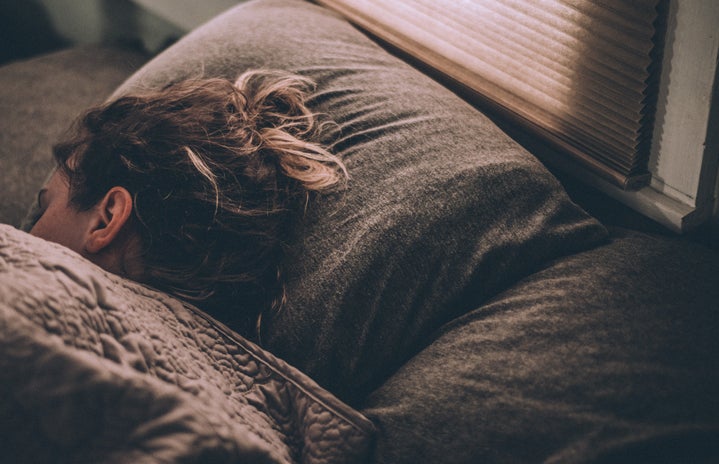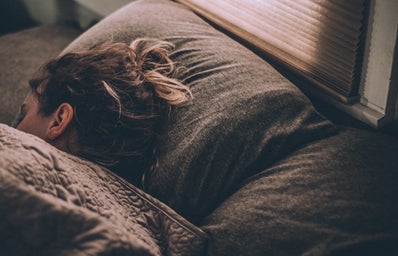You read the title. Here’s a list of some sleep tips that helped me (and could help you) sleep better.
Get Sun First Thing in the Morning
If you want to sleep better at night, you gotta get natural light in the morning. Dr. Nathaniel Watson states, “Light is the single most important element for setting our circadian clock, and morning light is key.”
Your circadian clock is your body’s internal process that keeps you asleep or awake. It’s why you’re supposed to get tired at night and naturally wake up in the morning. However, constant screens, stress, or even eating late can mess up your daily cycle.
That’s why getting light in the morning is so important. When you wake up, open your blinds and soak up the sun. Go outside (without sunglasses) and enjoy the fresh air. Even the light outside on cloudy days will be good for you. For example, an overcast day is about 1,000 lumens bright, while office lights are only about 400 lumens.
Sleep in 90-minute Increments
This means you should sleep for either 7.5 or 9 hours. However, it is important to remember that 90 minutes is only an approximation. Everybody is different. The smart thing to do is create a consistent sleep routine, where you fall asleep and wake up around the same time every day (yes, even on weekends). Our bodies love habit and routine, and by doing so you might see your stress level decrease and overall happiness increase.
To put this into practice, take note of the time you fall asleep and wake up. Record how you felt when you woke up. Using the 90-minute rule, you can work to tweak your sleep schedule into its ideal form. If you want to wake up earlier, try pushing your alarm back in 15-minute increments. Wake up at that time for a few days, then push it back another 15 minutes. Repeat this process until you’re waking up at the time that’s best for you.
Avoid Night Lights
You want to make your room as dark as possible. I’m talking pitch black, can’t see your hand in front of your face, kinda dark.
Did you know your skin can sense light? It’s true! Even if you wear an eye mask to sleep, your skin still has a photosensitive system that can “see” light and affect your sleep. One study found that even a little bit of light when sleeping resulted in higher heart rates and insulin resistance the next morning.
So, before you make your way to dreamland, be sure to cover all those pesky electronic lights, close the blinds and put away your phone.
Night night, Seattleites!

